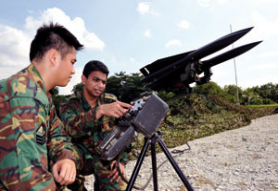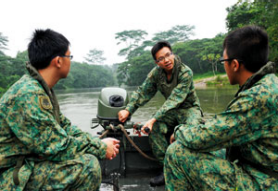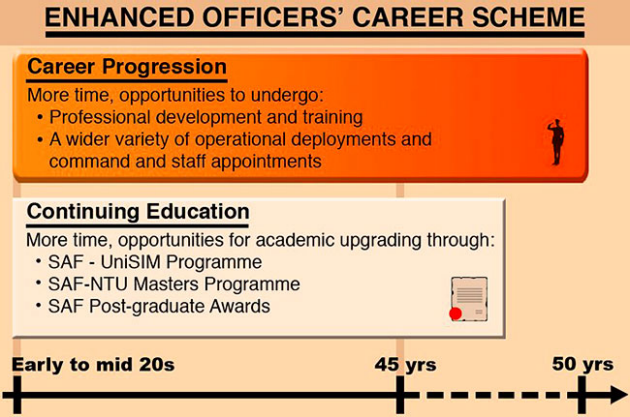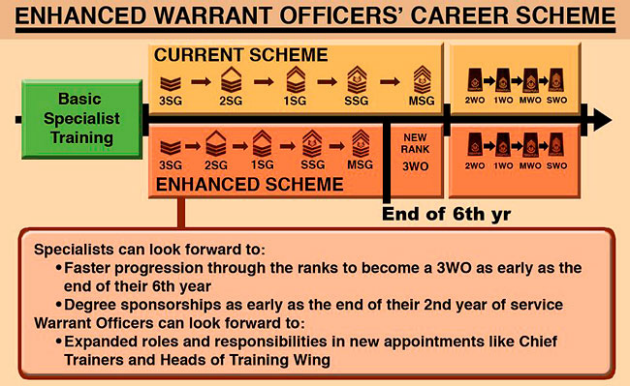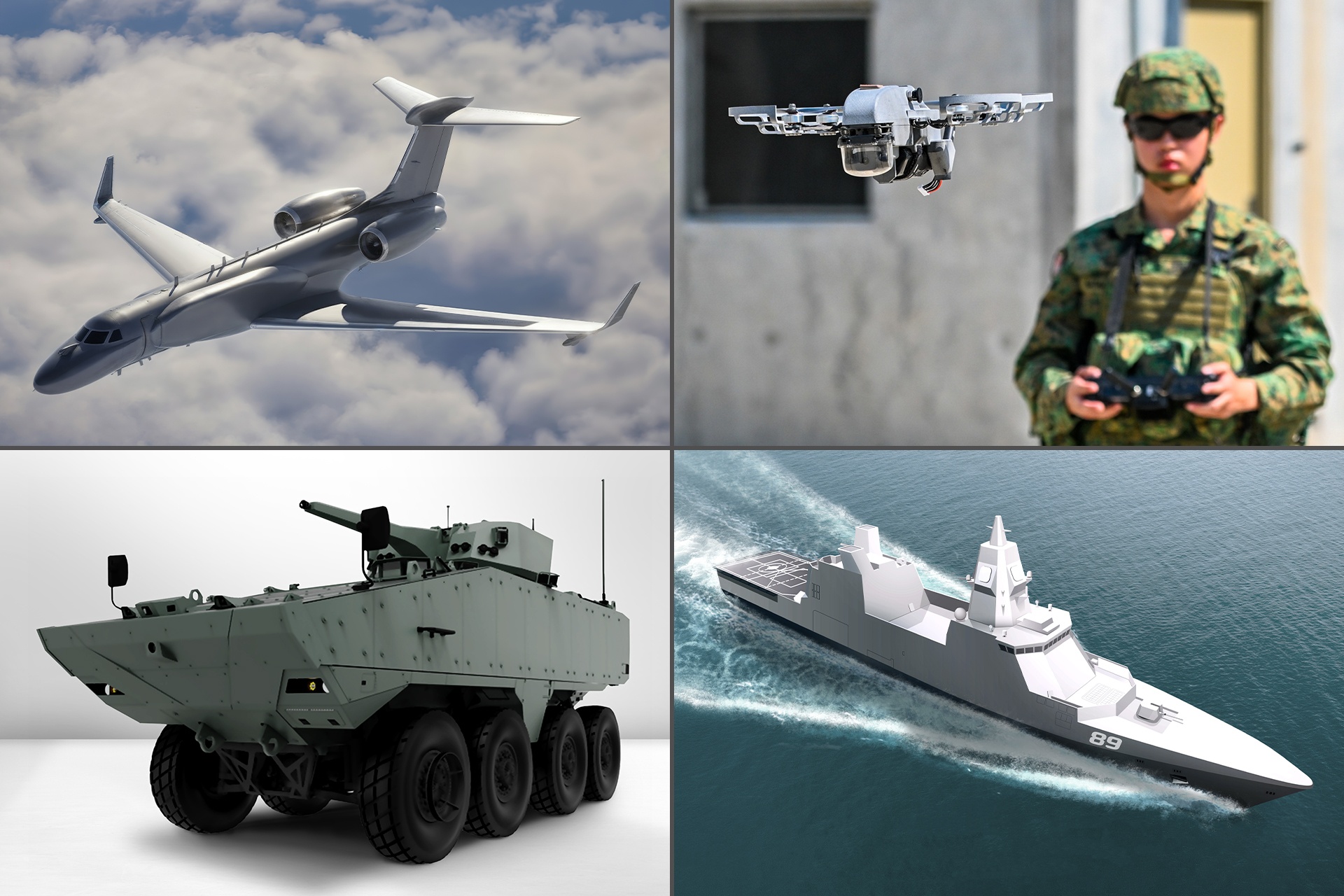OPS & TRAINING
ATTRACTING AND RETAINING TALENT
08 Jul 2009
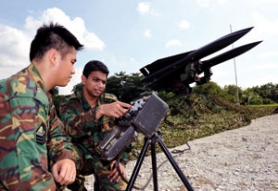
Both current and prospective Singapore Armed Forces (SAF) regulars will have much to look forward to in 2010.
To ensure that it continues to recruit, groom and retain talent, the SAF embarked on a year-long human resource review in early 2008 to better match the increasingly complex demands of today's 3rd Generation Force with the needs and aspirations of its servicemen.
The result? Enhanced career schemes and the birth of a new Military Domain Experts Scheme (MDES).
"Maintaining a strong and capable SAF depends on recruiting and retaining able and committed people to keep the SAF forceful and dynamic," said Deputy Prime Minister and Minister for Defence Teo Chee Hean as he unveiled the changes during a visit to Sembawang Air Base on 14 May.
The changes include enhanced career schemes for officers and warrant officers and a new MDES.
More time to develop and train
A key change in the officers' career scheme will be the extension of the retirement age from 45 to 50, which aims to give them more time to invest in developing and training -- for ground and joint postings -- and to maintain steady leadership renewal. This will also allow officers to acquire the necessary knowledge and expertise to operate new capabilities and to function effectively in the 3rd Generation SAF.
Commenting about the revised career length, Captain (CPT) Vengadeshwaran, Officer Commanding of 163 Squadron, said he welcomed not just the option to stay on longer, but also the added opportunities to undergo personal and professional development, such as the joint master's programme between the SAF and Nanyang Technological University.
"All these training and study courses will help us better prepare for the new operating context that the SAF works in now, which is quite different from what it was like 10 years ago. We participate in many more operations around the world, and the demands on us operationally and strategically are very different," he explained.
Major Fairoz, an Operations and Training Officer at 1st Battalion, Singapore Guards, agreed: "I think it's good that we are improving together with the times... Management has taken a two-way approach on these changes, holding briefings to update people and getting feedback from the ground."
He added: "At the end of the day, this policy is all about the people, and the best way to find out their problems and concerns is by communicating with them directly."
New rank to maximise, recognise potential
The enhanced warrant officers' career scheme will give them more responsibilities and feature a new 3rd Warrant Officer rank. The former maximises their potential while the latter allows those who perform well to become warrant officers as early as at the end of their sixth year.
With this enhanced scheme, the Warrant Officer and Specialist Corps will be repositioned as the Warrant Officer Corps, and those in this scheme can assume appointments such as Chief Trainers in weapons and small unit training. They can also embark on degree studies as early as the end of their second year of service.
These initiatives were well-received by specialists such as Master Sergeant (MSG) Won Choon Hun, who told PIONEER: "I feel this is a recognition of our abilities, and it will give greater motivation for specialists to work towards this new rank."
Thanks to the constant training, guidance and exposure opportunities provided by the SAF, MSG Won, a specialist trainer from the Army Combat Engineers Group, expressed confidence that specialists are well-prepared to handle the greater responsibilities that come with taking on bigger roles.
Developing specialised competencies
The newly launched MDES will allow uniformed personnel to develop deep competencies in specific areas such as engineering, technical, intelligence and nursing.
Air Engineering Officer CPT Gabriel Tham, who was involved in the initial conceptualisation and study of the scheme, explained that the changes are timely in meeting the demands of the 3rd Generation SAF. "The systems we're operating and maintaining are a lot more complex, so we need people who are academically and professionally equipped to support these systems," he said.
This highly specialised corps, which will comprise both degree and diploma holders, will complement the officers' and warrant officers' career schemes. With an eight-rank structure, ranging from ME1 to ME8, the career progression of regulars under MDES will be based on professional skills, expertise and responsibilities.
Besides market competitive salaries, this scheme will also offer opportunities early in the career to upgrade academically and to pursue further studies. Regulars under this scheme can enjoy a career up to age 60. Suitable personnel who are currently in service and whose vocations fall under MDES will be given the option to cross over to the new scheme.
MSG Jason Koh, who is in charge of the Command and Control systems on the Formidable-class frigate RSS Supreme, was glad that MDES will provide more time for naval combat technicians like him to become experts in the complex systems that they were trained in.
"I look forward to opportunities for further studies, so that I can have a deeper understanding of my domain," he said.
All the proposed changes will be implemented in the first quarter of next year.
ALSO READ IN OPS & TRAINING
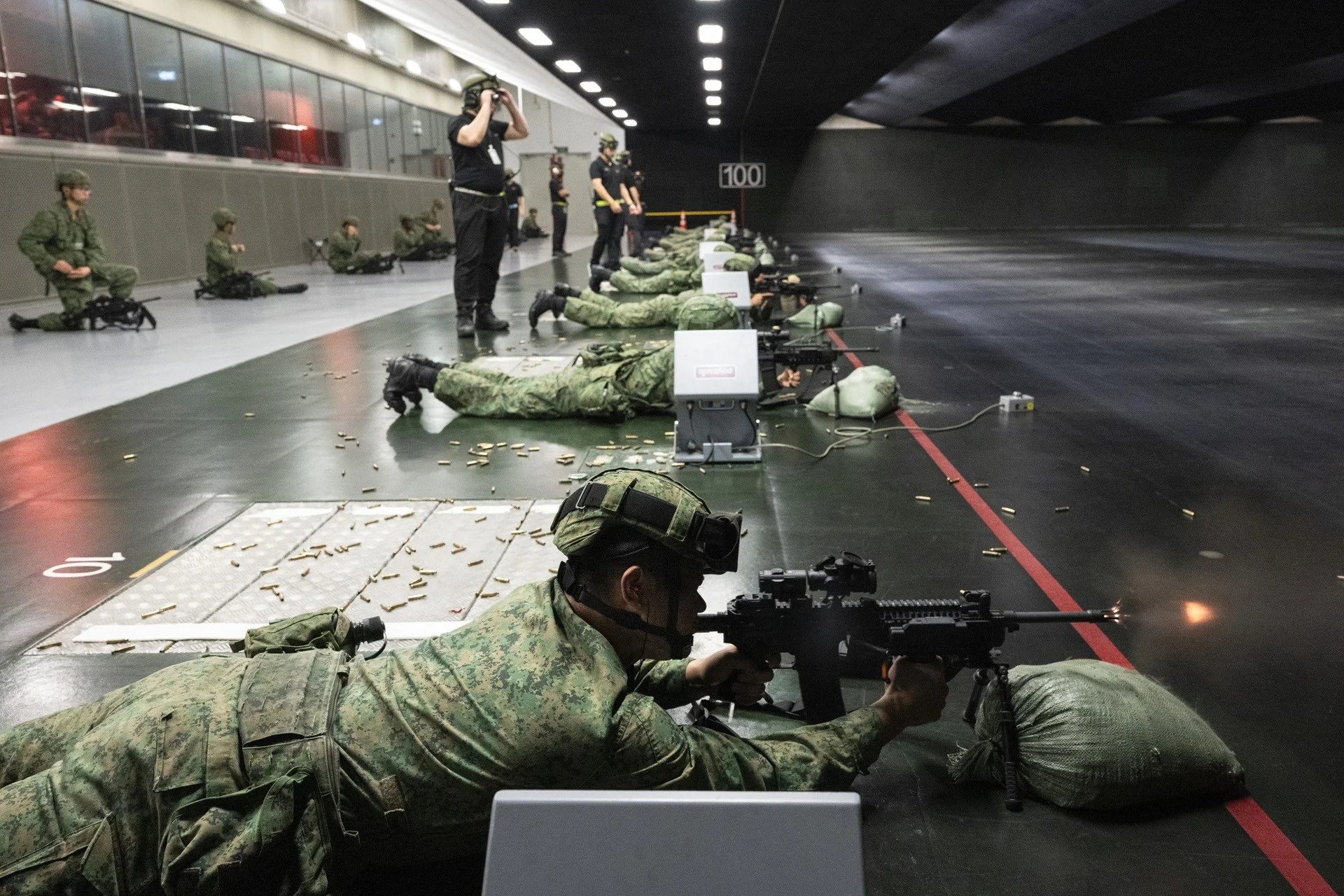
New firing range complex at Bedok Camp; Medical Classification System to be redesigned
27 Feb 2026
To train soldiers for a more complex environment, the SAF will build a new Multi-Mission Range Complex, as well as introduce opportunities for national servicemen to take on new roles, and more ways to volunteer.
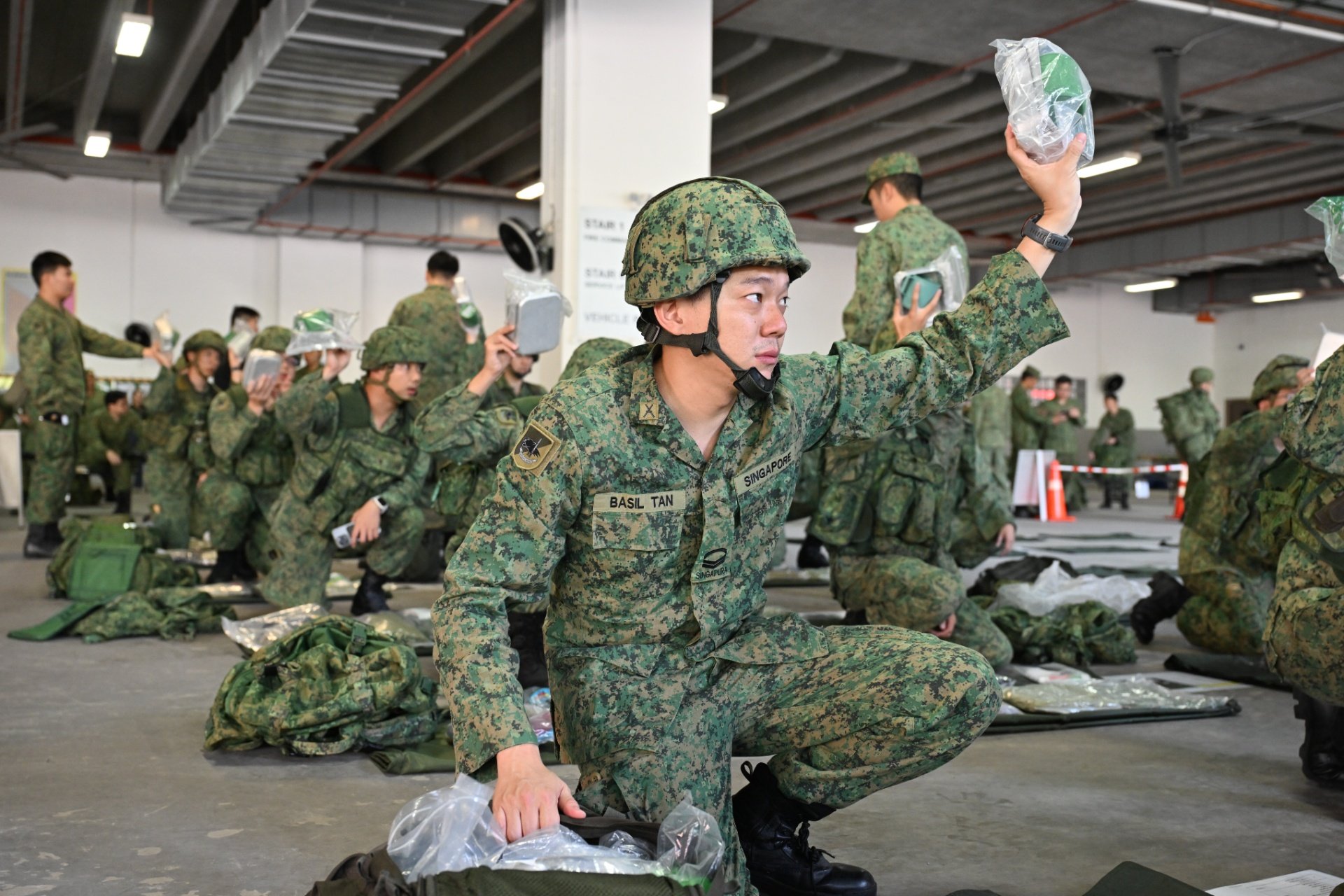
Reaffirming their commitment to defence
07 Feb 2026
Over 3,000 NSmen displayed their commitment to Singapore’s defence at a MOBEX in Selarang Camp.
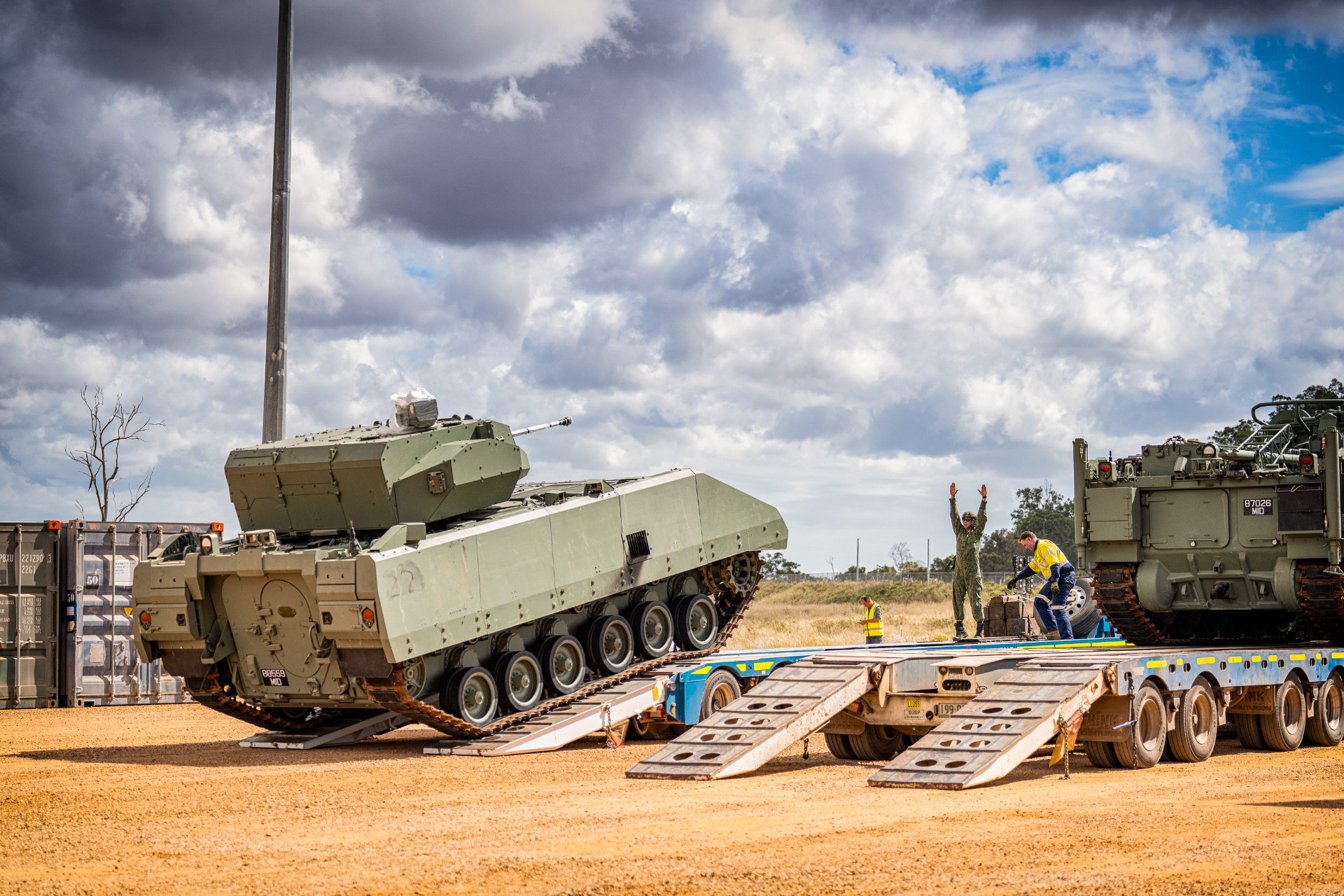
First in, last out at Ex Wallaby 2025
06 Nov 2025
Meet the teams who toil behind the scenes to enable the smooth conduct of the SAF’s biggest unilateral overseas exercise.

